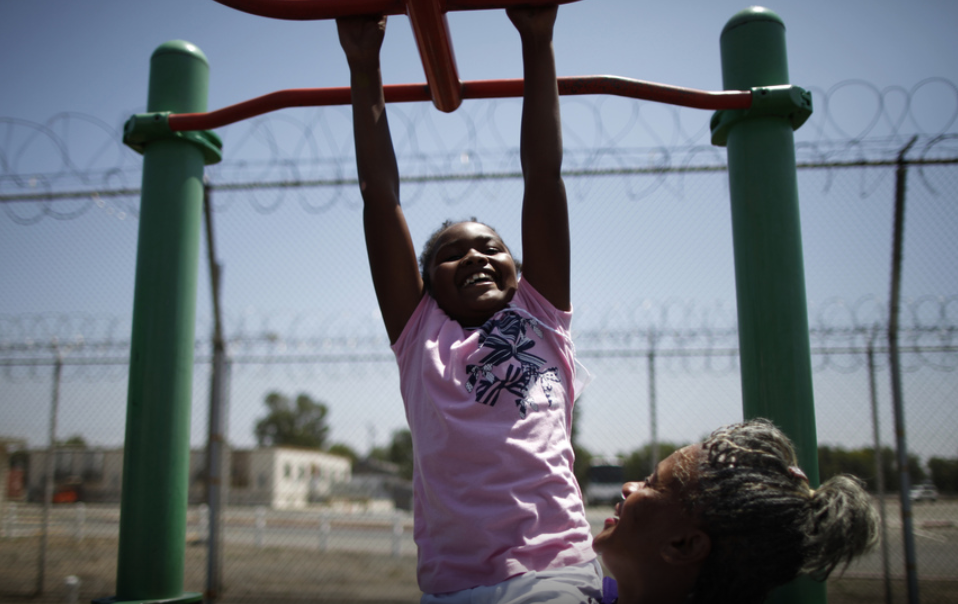- When one parent poisons the relationship between a child and the other parent because of a custody battle, some claim it’s parental alienation.
- But it’s a controversial idea — and proving it in court is a lengthy and costly process.
- However, if the draft Family Dispute Resolution Bill is passed, mediation will be compulsory for caregivers before approaching court, cutting down on legal costs and conflict — with a better chance of keeping family relationships intact.
Shannon Reddy* is parked at the agreed pick-up point for her son — a depressing strip mall in Kyalami, Midrand.
She chokes back tears as she tries to convince her 12-year-old son, sitting in the passenger seat of her old Mercedes-Benz hatchback, to come home with her.
“He was in panic mode. He was crying and shaking like the ocean,” Reddy recalls.
She’s recounting the events of two years ago from her desk at an engineering firm, where she works as an administrator.
“After 10, 15 minutes of pleading with him I just had to say, ‘It’s okay, boy. You can go back to your dad.’”
Although their divorce was not yet finalised, Reddy says she and her husband agreed that they would split parenting responsibilities equally and her son would be allowed to stay with her every second week.
Reddy recalls her husband “gleefully watching this scene unfold from his Land Rover”, which was parked next to her. “He made a point to take out his phone to record this humiliating rejection,” she remembers.
She says she ignored him and instead made her son promise to give her a call if he changed his mind.
But she knew he wouldn’t.
“My husband brainwashed my son to the point where he doesn’t even know his favourite colour,” Reddy says. “He has taken my son’s voice. He’s taken mine too.”
Parental alienation explained
During high-conflict divorces children are often caught in the middle, being used as a pawn by one parent to hurt the other.
When this goes so far that the relationship between the child and the targeted parent breaks down, for no legitimate reason such as physical abuse, mental health issues or drug use, some experts call it parental alienation.
It’s a controversial idea, though. Critics argue that it’s “pseudo science” because it paints women as vindictive, out to get back at ex-partners, and so disempowers women standing up to abuse. On the other side are fathers’ rights groups who claim dads lose contact with their children because mothers brainwash their children against them.
Because research shows that there’s no general pattern of whether it’s moms or dads who are more likely to turn their children against the other parent, legal experts say the issue should rather be seen as focusing on the alienated child than on trying to find which parent is in the wrong.

So, when looking into suspected alienation cases, reviewers are advised to check for “unreasonable negative feelings”, such as anger or rejection, towards a parent when it doesn’t reflect the child’s true experience.
But regardless of the agreed definition, it’s a no-win situation. In fact, supporters argue, parental alienation can be seen as emotionally abusing a child.
Educational psychologist Tania Holz explains these can be things like refusing to want to connect with a parent despite previously having had a good relationship and there not being any signs of abuse, or being disrespectful or even violent towards the targeted parent, reflexively siding with the other and parroting their opinions. The behaviour often goes further, with even family members or friends of the targeted parent also being snubbed.
“It was like I had been erased”
“One day in 2020, when I still lived in our family home, I returned from work and saw that my husband had removed most of the family pictures from the frames,” Reddy says.
“In the ones that were left, I had been cut out. It was like I had been erased.”
During the COVID lockdown that year, her husband went so far as to bolt himself and their son in a room all day to prevent her from seeing him.
She says: “My son and I were very close. His father knew what he was doing by blocking me from seeing him.”
What would drive someone to destroy the relationship their child has with the other parent?
Holz says alienating parents may experience the decision to separate as an ego blow, triggering feelings of humiliation and abandonment, with “the child becoming the mouthpiece of their hatred”.
In fact, in some cases alienating parents show signs of narcissism, which she explains as someone having an excessive sense of self-importance and caring little for the feelings of others. This makes it difficult for them to form healthy relationships with the people around them.
Although parental alienation doesn’t always play out the same way, researchers say emotional manipulation is a common theme, with the alienating parent demanding loyalty from the child by threatening or withdrawing affection from them if they show support for the other.
“A child’s job is to survive,” says social worker Heidi Reynolds, who runs a private practice in Johannesburg. “They don’t have much of a choice, so they will align with the parent who keeps them safe and reject the other one.”
Bad mouthing the estranged partner is often part of the alienating parent’s denigration campaign, argues Reynolds. “For example, they’ll say things like: ‘Your dad doesn’t love you because he doesn’t pay maintenance’ or ‘Mom has a new husband; she doesn’t love you anymore.’ Eventually the child will start believing this.”
Because a judge has to take claims of abuse seriously when deciding on custody, such allegations — even when false — can be a powerful weapon.
This is what happened to Paul Breytenbach* from Kempton Park following his divorce in 2009, when his ex-wife falsely accused him of molesting their then five-year-old daughter.
“My ex filled my daughters’ heads with a manufactured history of abuse. They believed I was this violent guy,” Breytenbach says.
Months of criminal investigation and supervised visits followed, revealing that it was, in fact, the mother’s new boyfriend who was responsible for the physical abuse.
But Breytenbach’s bond with his daughters was broken.
“I’m hoping that, as they get older, they’ll be more interested in a relationship.”
Research shows that a parent being rejected by their child can experience stress, anxiety and depression.
It can feel like mourning the death of a child, except that there’s no comfort of a ritual like a funeral, which could help with processing bereavement. Such a parent can end up experiencing a never-ending type of grief, which psychologists call “ambiguous loss”.
As one alienated parent told researchers in a 2020 study published in the Journal of Child and Family Studies: “It’s like he’s murdered my children … But the only thing is I can’t grieve. I can’t go to a grave.”
Lengthy lawsuits
The Children’s Act says that a parent who is denied access to their child can take the matter further — either by going to court or asking for mediation, which is the preferred starting point because it’s cheaper and causes less conflict.
“Parents may apply through the Children’s Court, where they won’t need legal representation but instead will be helped by a family advocate for free,” says family law attorney Ayesha Karim.
The family advocate has to look out for the child’s best interest, which the Constitution says is the main priority in custody agreements.
A social worker and the advocate will then oversee a series of interviews with the child and parents, and other people who might have a role in the child’s life, like family members or friends. After these interviews, the team writes up their recommendations for what custody arrangements should look like.
If the parents come to a reasonable agreement about each one’s rights, in line with these recommendations, a legally binding plan is drawn up to outline their responsibilities.
If the mediation process fails, the couple can go to court, where a judge will consider factors such as the parent’s character, the nature of the relationship with their child and how well they’ll be able to care for them.
The court may appoint forensic psychologists and social workers to investigate claims of parental alienation, as well as a parenting coordinator to help the parents resolve their differences.
Parents who break the rules that a judge sets out, say, by blocking one caregiver’s access to their child, can be jailed.
Cashing in on custody battles
But it can cost a fortune to prove parental alienation in court, says Karim. “These cases are drawn out and the legal fees can really rack up, especially if you have to pay experts such as forensic psychologists to assess the child,” she explains. She’s seen cases where parents were left with a bill of more than R200 000, and Reynolds, who is often called as expert witness in such cases, says she has a client who is R1.2-million in debt.
Educational psychologist and attorney Tiaan Kirsten notes that lawyers often go straight to litigation, even when there are options — such as mediation — that would be cheaper and healthier for the family.
But if new draft legislation — introduced for public comment in 2022 — goes through, families will be able to side-step greedy lawyers and sky-high bills.
The draft Family Dispute Resolution Bill will make mediation compulsory for caregivers before they can go to court. With this more inclusive approach, parents will learn why mediation works to solve family disputes and be taught how best they can support their child through the process, while children will get to understand what they can expect of the adults along the way.
Family court could get cheaper too.
Mediators’ rates will be set out by the minister of justice and correctional services and both mom and dad will have to pay equally (unless one of them offers to pay for everything).
A senior legal adviser at the South African Law Reform Commission, Dellene Clark, says that the Bill is still in draft stage and has not gone to the minister of justice yet, which is the start of the process for getting a new law passed.
Although she is under a mountain of legal debt, Reddy remains focused on getting back her son.
“My son is my purpose. The fact that he still calls me ‘mom’ is enough to keep me fighting for him.”
* Not their real names
Christina Pitt is a health journalist at Bhekisisa.







